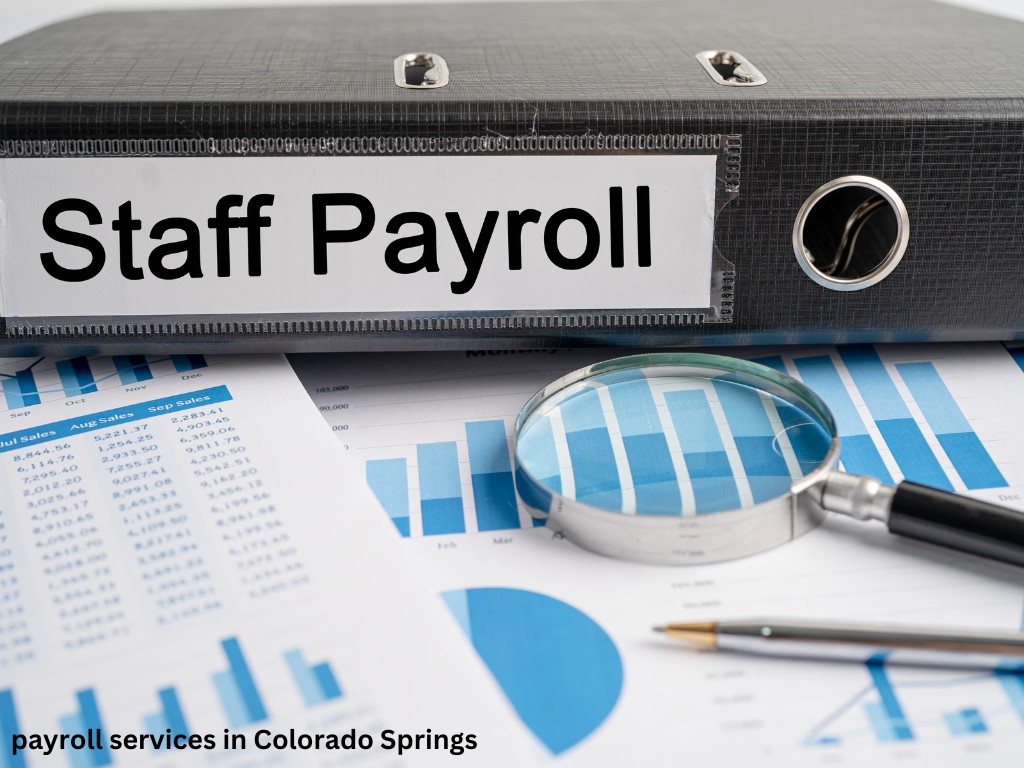What Small Business Owners Should Know About Multi-State Taxation
Streamlining your business’ payroll is not the only thing that would keep you busy as a business owner. Did you know about Multi-State Taxation? Owning a small business in Colorado Springs means you may have to deal with the tax requirements of multiple states, not just Colorado. This can arise from various scenarios, such as:
- Having employees who live in different states
- Providing services or selling products to customers in other states
- Maintaining a physical presence or “nexus” in multiple states
Navigating these multi-state tax obligations can be challenging, but it’s essential to ensure your business remains compliant and avoids potential penalties or audits. Working with a payroll company for small business in Colorado Springs, CO, can give you the fundamentals of multi-state taxation and provide strategies to help you manage it effectively.
Understanding the Basics of State Taxes
State taxes can vary significantly from one jurisdiction to another, and it’s crucial to understand the basic principles of state taxation. Some key aspects to consider include:
- State Income Tax: Many states impose an income tax on businesses and individuals, with varying rates and filing requirements.
- Sales Tax: States have their own sales tax rates and rules, which can differ from the federal sales tax.
- Payroll Taxes: Employers are responsible for withholding and remitting payroll taxes, which can vary by state.
- Business Taxes: Some states levy specific taxes on businesses, such as franchise taxes or gross receipts taxes.
Familiarizing yourself with the tax landscape in Colorado and any other states where your business has a presence is an essential first step in managing multi-state taxation.
Nexus and State Tax Obligations
The concept of “nexus” is crucial in determining your state tax obligations. Nexus refers to the minimum level of presence or activity a business must have in a state before that state can impose its taxes. Factors that can create nexus include:
- Physical Presence: Maintaining a physical office, store, or other business location in a state.
- Employees or Independent Contractors: Having employees or independent contractors working in a state, even remotely.
- Sales and Revenue: Generating a certain level of sales or revenue within a state.
Understanding the nexus rules in each state where your business operates is crucial to ensuring you comply with the relevant state tax requirements. Failing to do so can result in costly audits, penalties, and back taxes.
State Tax Filing Requirements
Once you’ve determined your state tax obligations, you’ll need to comply with the specific filing requirements for each state. This may include:
- State Income Tax Returns: Businesses may need to file state income tax returns, which can have different due dates and filing procedures than federal income tax returns.
- Sales Tax Returns: Businesses that sell goods or services may need to collect and remit sales tax, which often requires filing periodic sales tax returns.
- Payroll Tax Returns: Employers must withhold and remit state payroll taxes, which may involve filing state-specific payroll tax returns.
- Business Tax Returns: Certain states may require businesses to file additional tax returns, such as franchise tax or gross receipts tax returns.
Keeping track of the various filing deadlines, forms, and payment requirements for each state can be a complex task, especially for small businesses with limited resources.
Risks of Non-Compliance
Your payroll company for small business in Colorado Springs, CO, should know that failing to comply with multi-state tax obligations can have serious consequences for your small business, including:
- Audits and Penalties: State tax authorities may conduct audits and impose penalties for late or inaccurate filings, underpayment of taxes, or failure to register and file in the first place.
- Interest and Back Taxes: Businesses may be required to pay back taxes, along with interest and penalties, for any tax liabilities they failed to address.
- Legal Consequences: In extreme cases, businesses that persistently fail to comply with state tax laws may face legal action, such as liens, levies, or even criminal charges.
The risks of non-compliance can be significant, so it’s crucial to stay on top of your multi-state tax obligations and seek professional guidance when needed.
Strategies for Managing Multi-State Taxation
To effectively manage multi-state taxation for your small business, consider implementing the following strategies:
- Establish a Multi-State Tax Compliance Process: Develop a systematic approach to tracking your business’s activities in each state, monitoring tax obligations, and ensuring timely filings and payments.
- Leverage Technology and Automation: Utilize accounting software, payroll services, and other digital tools to streamline your multi-state tax compliance efforts and reduce the risk of errors.
- Seek Professional Guidance: Consult with a payroll company for small business in Colorado Springs, CO, with a qualified tax professional, such as a certified public accountant (CPA) or tax attorney, to ensure you’re meeting all your state tax obligations and taking advantage of any available tax credits or deductions.
- Stay Up-to-Date on Tax Law Changes: Regularly review changes in state tax laws and regulations to ensure your compliance processes are current and effective.
By proactively managing your multi-state tax obligations, you can minimize the risks of non-compliance and focus on growing your small business in Colorado Springs.
Choosing the Right Payroll Company for Small Businesses in Colorado Springs, CO
As a small business owner in Colorado Springs, partnering with a company offering
online payroll services for small business in Colorado Springs, CO, can be a game-changer when it comes to managing multi-state taxation. A reliable payroll service can handle the complexities of state tax compliance, freeing up your time and resources to focus on your core business activities.
When selecting a payroll company, look for one that has extensive experience in multi-state taxation and a proven track record of supporting small businesses like yours. Key factors to consider include:
- Expertise in Colorado and Other Relevant States: Ensure the payroll company understands the unique tax requirements in Colorado and any other states where your business operates.
- Comprehensive Tax Compliance Services: The payroll company should be able to handle tasks like state tax registration, withholding, filing, and payment processing.
- Seamless Integration with Your Accounting Systems: Choose a payroll provider that can easily integrate with your existing accounting software, streamlining your financial management processes.
- Responsive Customer Support: Look for a payroll company that offers reliable and knowledgeable customer support to assist you with any questions or issues that may arise.
FAQs About Multi-State Taxation
Q: How do I determine if my small business has a tax nexus in another state?
A: The concept of nexus is crucial in determining your state tax obligations. Factors that can create nexus include having a physical presence, employees, or a certain level of sales or revenue in a state. Consult with a tax professional to assess your specific business activities and identify any states where you may have a tax nexus.
Q: What are the common types of state taxes that small businesses may need to pay?
A: Common state taxes for small businesses include state income tax, sales tax, payroll taxes (such as unemployment insurance and workers’ compensation), and business-specific taxes like franchise or gross receipts taxes. The specific taxes you’ll need to pay will depend on the states where your business has a nexus.
Q: How do I register my small business for state taxes?
A: The registration process for state taxes can vary by state. In general, you’ll need to contact the relevant state tax agency (such as the Department of Revenue or Department of Taxation) and complete the necessary forms and applications. Your payroll company can often assist with this process.
Q: What are the potential penalties for failing to comply with multi-state tax obligations?
A: The penalties for non-compliance can be severe, including audits, back taxes, interest, and even criminal charges in some cases. Failing to register, file returns, or pay taxes on time can all result in penalties that can significantly impact your small business.
Colorado Payroll Services: Taking Control of Payroll for Small Businesses
Partnering with a reputable payroll company for small business in Colorado Springs, CO, that can take control of your tax compliance and focus on the core aspects of your business, will lighten your task load.
At Colorado Payroll Services, we specialize in providing comprehensive payroll services for small businesses in Colorado Springs. Our team of tax experts has extensive experience in multi-state taxation, ensuring your business remains compliant and avoids costly penalties. Contact us today to learn how we can help you streamline your payroll and tax management processes!



